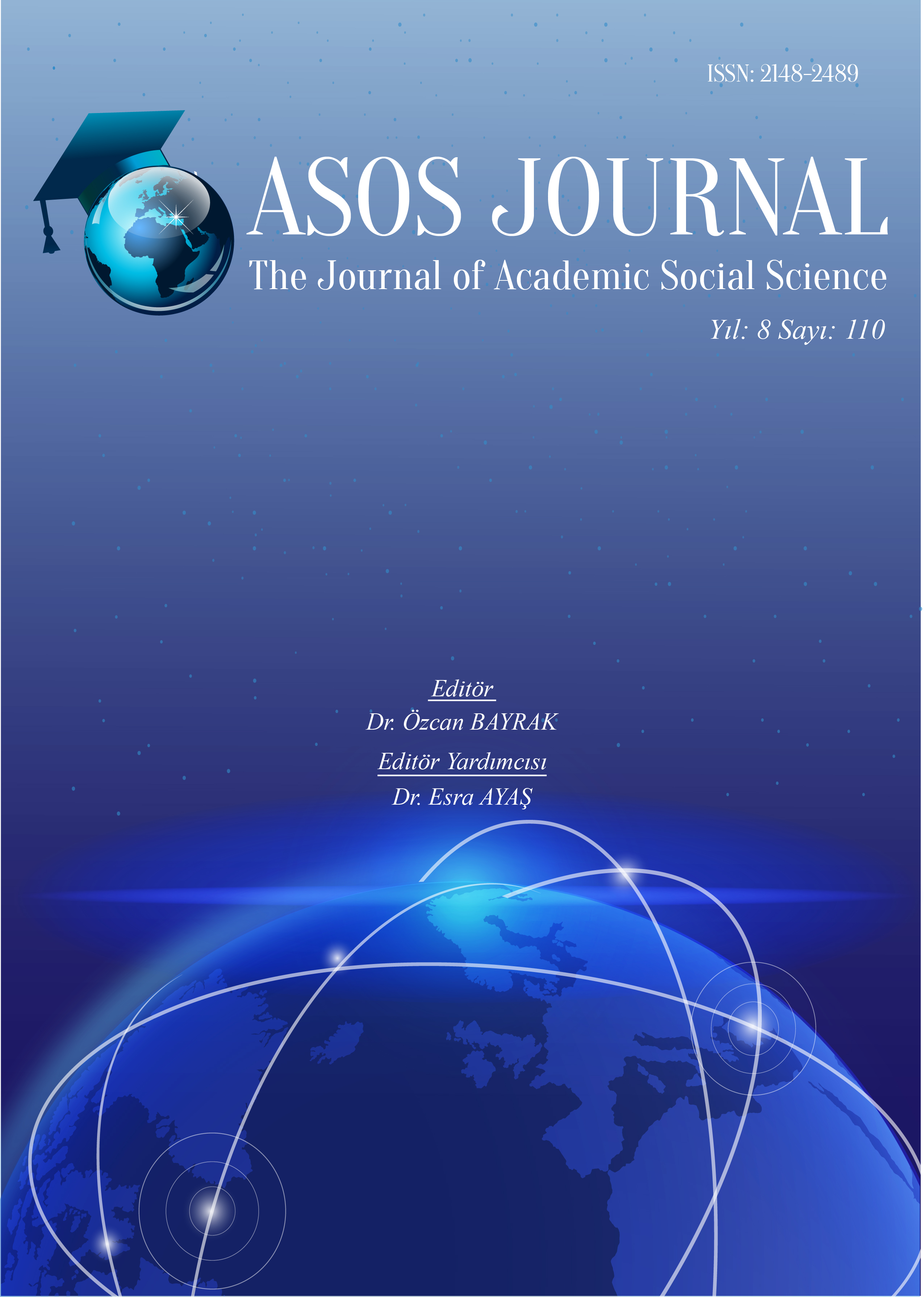Author :
Abstract
Kartezyen felsefenin özne sorunu, insanı ruh ve bedenin birleşimi olarak gören teolojik anlayışın mirasına dayanır. Kuşkusuz Kartezyen özne anlayışı, bu mirası modern felsefeye seküler şekilde aktarır. Buna göre, insan söz konusu olduğunda, sorun artık onun ilahi kurtuluşundan ziyade, öncelikle onun ne olduğudur. İnsanın ne olduğu sorusuna verilen yanıt, modern felsefe ya da Aydınlanmanın insan görüşünün temelidir. İnsan sorunu, “akıl” ve “düşünme” kavramlarıyla yanıtlanır. Modern felsefenin bu yanıtı, insanı genel bir kalıp içinde değerlendirir. Oysan insan, yaşamı olan bir varlıktır ve onun görünür biçimleri, her tek kişiye özgüdür. İşte modern felsefenin bu eksikliği romantizm tarafından eleştirilir. Romantizmin yaşam kavramını öne çıkarması, insan sorununun genel kalıpla yanıtlanmasına mutlak bir karşı çıkış değildir. Romantizm, insanı tanımlayan genel özelliklerin, tek tek insanlarda görünür olduğunu bize gösterir. Bu nedenle insanın ne olduğu, kişisel farklılıklar göz önünde bulundurulmadan yanıtlanamaz. Bu çalışmada yaşam, özgürlük gibi kavramlar etrafında, Romantizmin modern insan sorununu, kişi sorununa indirgemesinin izleri aranmaktır ve insana dair genel tasarımı, ne bakımdan aştığı incelenmektedir.
Keywords
Abstract
The problem of subject of Cartesian philosophy is based on the legacy of the theological understanding that sees human as a combination of soul and body. Undoubtedly, Cartesian philosophy transfers this legacy to modern philosophy in a secular way. Accordingly, as far as human is concerned, the problem is no longer about his divine salvation but rather what he is. The answer given this question is the basis of the human view of modern philosophy and the Enlightenment. The problem of human is answered with the concepts of "reason" and "thinking". This answer of modern philosophy evaluates human in a general pattern. However, man is a being that has a life and his visible forms are unique to every single person. This deficiency of modern philosophy is criticized by romanticism. The concept of life of romanticism is not an absolute opposition to the general design of modern philosophy about human problem. Romanticism shows us that the general characteristics that define human beings are visible in individual person. Therefore, the question of what is human is cannot be answered without considering personal differences. In this study, the traces of Romanticism's reduction of the problem of human to the problem of person are sought around the concepts such as life and freedom, and the general design of human is examined in what way it transcends.
Keywords
- Berlin, Isaiah, (2004), Romantikliğin Kökleri, (Ed., Henry Hardy; Çev. Mete Tunçay), Yapı Kredi Yayınları, İstanbul.
- Cassirer, Ernst, (2017), Rousseau, Kant, Goethe, (Çev.,Mustafa Tüzel), İstanbul, İş Bankası Yayınları.
- Diderot, Denis, (1992), Political Writings. (Çev. Ed., Jhon Hope Mason, Robert Wokler), Cambridge University Press, Cambrige.
- Ewald, Oskar, (2010), Fransız Aydınlanması, (Çev., Gürsel Aytaç), Doğu Batı Yayınları, Ankara.
- Fichte, Johann, Gottlieb, (1991), The Scinence of Knowladge, (Çev., Peter Heath, Jhon Lachs), Cambridge University Press, Cambridge, New York.
- Fichte, Johann, Gottlieb, (2005), The System of Ethics, According to the Principles of the Wissenschaftslehre, (Çev., Daniel Breazeale, Günter Zöller), Cambridge University Press, Cambridge, New York.
- Goethe, Johann, W., (1997), Mektuplar, (Çev., Melahat Togar), AD yayıncılık, Istanbul.
- Goethe, Johann, W., (2005), Doğu-Batı Divanı, (Çev., Bayram Yılmaz), Okumuş Adam Yayınları, İstanbul.
- Goethe, Johann, W., (2007), Genç Werther’in Acıları, (Çev., Nihat Ünler), Can Yayınları, İstanbul.
- Hamann, Johan, Georg, (2007), Writings on Philosophy and Language, (Çev., Kenneth Haynes), Cambridge University Press, Cambridge, New York, Melbourne.
- Hölderlin, Friedrich, (1988), Essays and Letters on Theory Intersections, (Çev., Ed., Thomas Pfau), State University of Ney YorkPress, Albany.
- Hölderlin, Friedrich, (1990), Hyperion and Selected Poems, (Ed. Çev. Eric L. Santner), Continuum, New York.
- Hölderlin, Friedrich, (2008), Seçme Şiirler, (Çev., A. Turan Oflazoğlu), İz Yayıncılık, İstanbul.
- Huch, Richard, (2005), Alman Romantizmi, (Çev., Gürsel Aytaç), Doğu Batı Yayınları, Ankara.
- Kant, Immanuel,(1995), Ahlak Metafiziğinin Temellendirilmesi, (Çev., İoanna Kuçuradi), Türkiye Felsefe Kurumu Yayınları, Ankara.
- Novalis, (1997), Philosophical Writings, (Çev., Margaret Mahony Stoljar), State University of New York Press, Albany.
- Novalis, (2003), Poetika, (Çev., Ahmet Sarı, Şahbendar Çoraklı), Babil Yayınları, İstanbul.
- Novalis, (2006), Geceye Övgüler, (Çev., Ahmet Cemal), Türkiye İş Bankası Kültür Yayınları,
- Novalis, (2007), Notes for a Romantic Encyclopaedia, (Ed., David W. Wood), State University of New York Press, Albany.
- Novalis, (2015), Sais Çırakları, (Çev., Mehmet Barış Albayrak). Notos Kitap Evi, İstanbul.
- Rousseau, Jean-Jacques, (1999), Discourse on Political Economy and The Social Contract, (Çev., Christopher Betts), Oxford University Press, Oxford, New York.
- Rousseau, Jean-Jacques, (2011), Emile, (Çev., Yaşar Avunç), Türkiye İş Bankası Kültür
- Schlegel, Friedrich, (1991), Philosophical Fragments, (Çev., Peter Firchow), University of Minnesota Press, Minneapolis, London.





